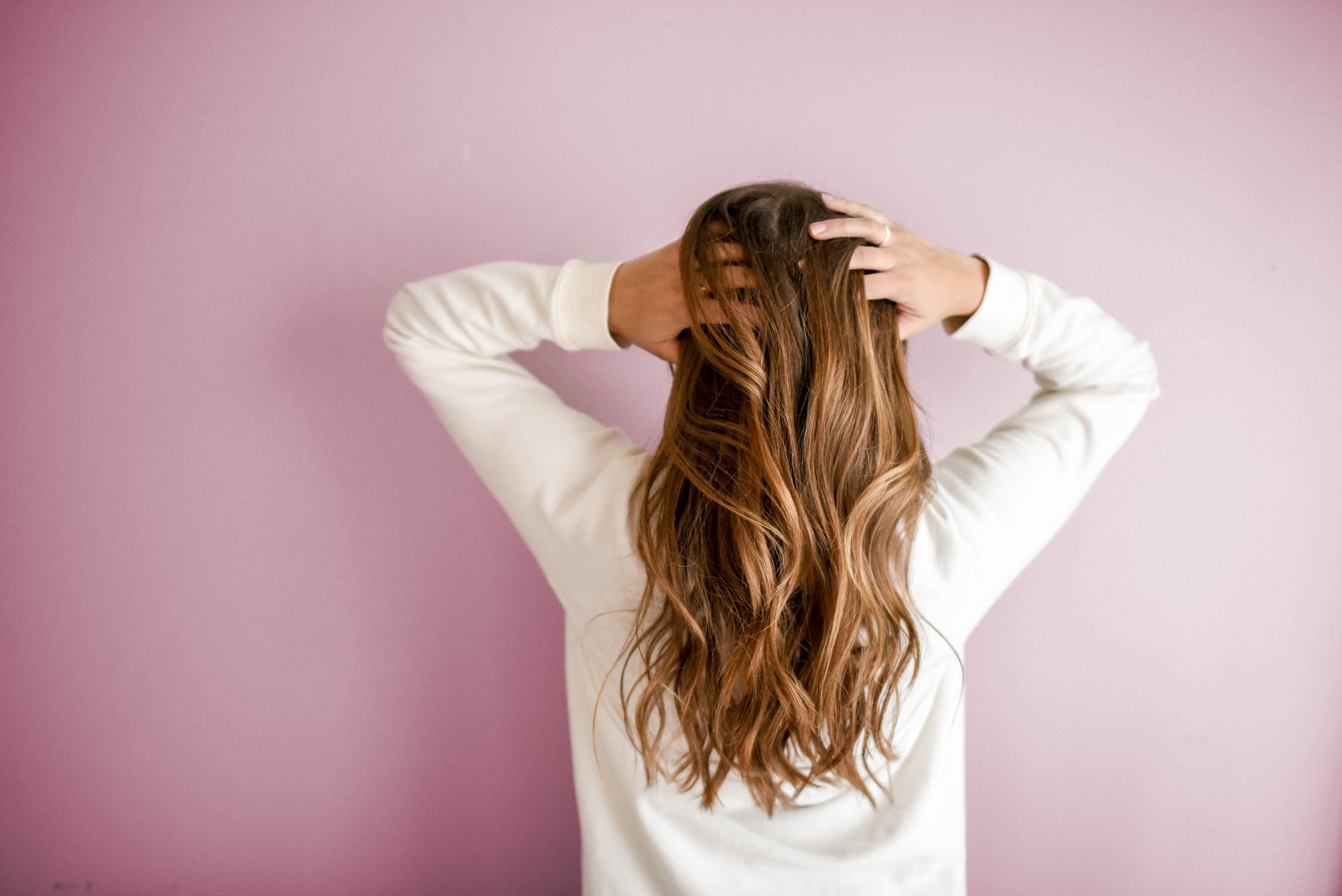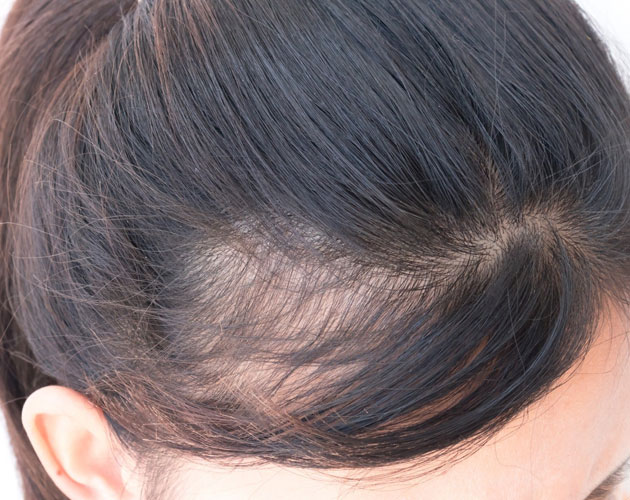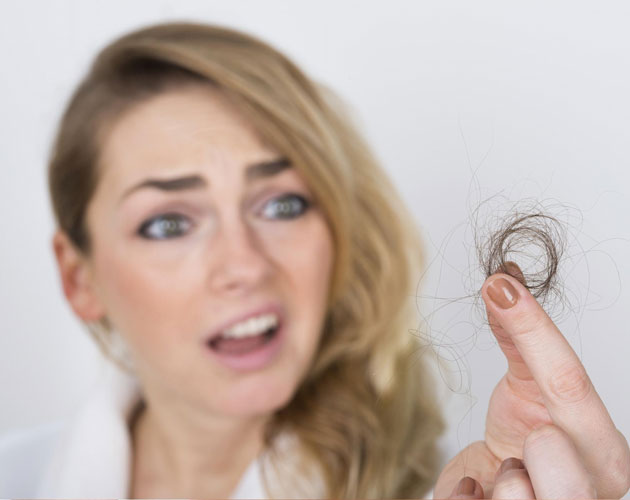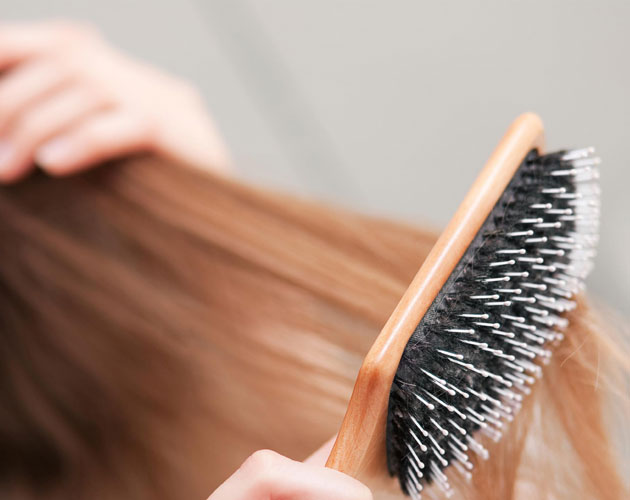
Causes of Hair Loss in Women (and men!)
Causes of Hair Loss in Women (and men!)
Looking for comprehensive information on hair loss in men and women? Hair loss has become almost commonplace nowadays. And while there are several factors and causes, it’s important to understand your treatment options and the different ways to stop hair loss before it starts to severely impact your life and self-esteem.
Whether you’re suffering from male or female pattern baldness, here are the top causes of hair loss and what you can do to treat thinning or bald spots and start stimulating healthy hair growth.
What Is Hair Loss?
Hair loss affects nearly 80 million men and women due to hereditary hair loss, according to the American Academy of Dermatology. Some people only experience the loss on their scalp and face while others see hair loss all throughout their body.
On average, individuals lose about 50 to 100 hairs each day, which isn’t noticeable given that that most people have 100,000 hairs on their head alone. New hair should grow in where the lost hair falls out, but those suffering from alopecia see an adverse effect.
To detect what an abnormal amount of hair loss looks like, collect the hair that falls out during a shower to see if it comes out in large clumps. It is natural to have a small section of hair come out during scrubbing but finding large rounds of hair stuck in the drain after just one shower may mean there is a bigger problem at hand. Talk to a doctor to see if alopecia is a viable diagnosis and discuss possible treatment plans.
Causes of Hair Loss in Men and Women
Many people begin losing their hair from a hereditary issue rather than it randomly occurring. If that is what is happening, it may be due to a new hair care product or medicine that affects the growth of hair or causes hair loss.
Hormones
Otherwise, it may be due to new hormones the body is producing with age. People going through puberty may find that their hair is thinning or falling out because of the changes in their body.
Eventually, those should level out and allow the hair to go back to its normal state. Other hormonal changes from pregnancy, childbirth, discontinuing birth control pills and menopause are all events after puberty that can have a huge effect on the way hair grows.
Certain medications to treat illnesses are the main cause for hair loss. For those going through chemotherapy to treat cancer, hair will fall out at a rapid rate but continue growing back as the treatment halts.
Health Issues
High blood pressure, arthritis and heart problems all contribute to hair loss and medications to treat each of them can expect the side effects. Ensure that none of them will be individually life-threatening as it is listing the side effects on the medicine bottles at the time of prescription pick-up.
On the other hand, even exposure to harsh chemicals in your shampoo and conditioner can contribute to skin irritation and loss. Therefore men and women must be very careful about their hair care products. Switching to a good shampoo for hair loss and growth can ensure natural ingredients that will protect and nourish your hair follicles to promote regrowth.
If none of the previous issues are what is causing the hair loss, consider recent life events that may be physically triggering to the body.
Recently experiencing a traumatic car crash may cause the body to be losing its hair as a physical coping mechanism. A death in the family can cause financial and emotional stress as arrangements for funerals and travel begin filling everyday life.
Again, the body can react in many ways to trauma and hair loss is one of them. Consult a professional therapist and doctor to determine if either of these issues are what is causing recent hair loss.
Treatment Options
Although hair loss is affecting a large portion of men and women in America, there are multiple ways to work against it without damaging existing hair. As always, consult a doctor or dermatologist before seeking out any of these treatment options as they will be able to define the most suitable option.
Medication
Over the counter medicines are the typical way treatment options begin for hair loss. Many include an ingredient called minoxidil (Rogaine), which is the main active ingredient to reboot the hair loss.
Many of these products are taken over the counter and applied directly to the scalp to determine if a topical treatment is all that is needed. Be cautious before using these products as they might create hair growth in places other than the desired area.
Minoxidil can also cause irritation to the scalp that provokes scratching and allows hair to weaken over time.
Procedures
If the hair loss is getting to a point that topical treatments are not the answer, going under the knife may be the only option to prevent it from spreading or continuing.
Hair transplant surgery involves moving small plugs of the hair and inserting some into bald sections. This procedure works well for those who have hair loss running in their families and see the affect hitting the top of their head.
Keep in mind that this method requires multiple surgeries as it is a progressive type of hair loss.
A scalp reduction is also an option for those are experiencing extreme hair loss in one area of their head. A surgeon will remove the section of the scalp without hair and replace it with a section that does have hair.
The surgeon also has the option to fold a flap of the scalp over the area that is balding. On the opposite end of the scalp reduction, there is an option to get a tissue expansion that allows the surgeon to insert an expander in the first surgery and take it out during the second.
Over the span of a month, the expander will allow stretch out the part of the scalp with hair and allow the bald spots to decrease.
Although they promise that the hair growth will come back, there is a chance that the hair will grow back patchy.
Some experience bleeding of the scalp, wide scars, and possible infection. Beyond these side effects of the surgery, there is a possibility that the surgery will not be successful for everyone.
Prevention
Ensuring head health is the number one way to prevent hair loss. Do not have hair in a tight bun or braid on a consistent basis as it encourages the hair to pull back and create a receding hairline.
Chemical treatments, excessive heat and blow dryers have been known to cause hair loss. Using a gentle baby shampoo can be a short-term solution to figure out if a current beauty regiment is not working.










